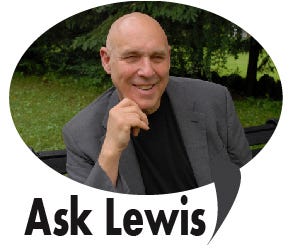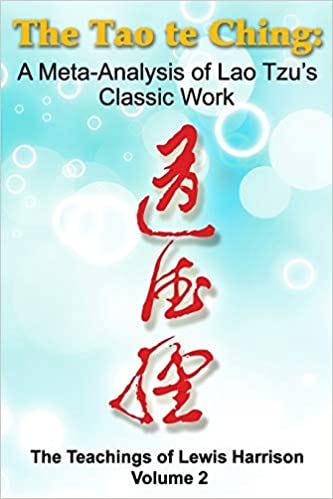A Great Visionary Leader Has Passed On - Who Was Thích Nhất Hạnh?
The main inspiration for engaged Buddhism, a friend of Martin Luther King, the "father of mindfulness" and a major influence on Western spiritual practices has left the building
“These newsletters serve a demographic of highly intelligent readers, and deep thinkers with a passion for ideas, critical thinking, and unknown possibilities. The path to finding happiness are among those ideas. Readers of my posts are usually tired of being patronized elsewhere by fact-less, opinionated know-nothings, who complain about everything they don’t like, but lack a willingness to think about, find resources, or create life hacks, shortcuts, and solutions to fix what they don’t like.”
——————————————————————————————————————
On a personal note: Please excuse grammatical errors, typos, repetition, and any general nonsense, and such in this post. I am getting a bit older now, and I have about 20,000 pages of information that must get published before I leave the mortal coil. I simply write and publish more than my humble editors are able to correct. If you find enough errors you are welcome to contact me about being an editor of my work.
Thanks for sharing this newsletter with your friends and associates.
Join us at our free spirituality, self-improvement for beginners Group and Forum for free tips, tools, and strategies to become a more introspective, contemplative, and happier person
https://www.facebook.com/groups/455029215769173
———————————————————
Q. Lewis, suddenly in the last few days I am being presented on social media with quotes, and stories about some Buddhist Monk, Thích Nhất Hạnh. There are so many Buddhist teachers in the world. Why is this particular teacher so important?
A. Thích Nhất Hạnh just passed away this week at 95 years old. To say he was an influencer in the world of self-improvement and personal development is an understatement.
———————————————————
Here is an excerpt about him from my program, The Best Loving Spiritual Life Course
Learn more about the course by clicking below or copying and pasting the link in your browser.
https://mailchi.mp/c5b84f76275b/the-best-loving-spiritual-life-course
———————————————————
Born as Nguyễn Đình Lang;( October 11, 1926 – January 22, 2022) this visionary influencer and thought leader was a peace activist, prolific author, poet, teacher, and founder of the Plum Village Tradition, historically recognized as the main inspiration for engaged Buddhism. Known as the "father of mindfulness", Nhất Hạnh was a major influence on Western practices of Buddhism, Zen, and effective ways of living the spiritual life. Engaged Buddhism, also known as socially engaged Buddhism, refers to a Buddhist social movement that emerged in Asia in the 20th century, composed of Buddhists who are seeking ways to apply the Buddhist ethics, insights acquired from meditation practice, and the teachings of the Buddhist dharma to contemporary issues.
Nhất Hạnh was exiled from Vietnam in the 1960s after expressing opposition to the Vietnam war. He later established dozens of monasteries and practice centers and spent most of his later life at the Plum Village Monastery in southwest France near Thénac, traveling internationally to give retreats and talks. He coined the term "engaged Buddhism" in his book Vietnam: Lotus in a Sea of Fire. After a 39-year exile, he was permitted to visit Vietnam in 2005. In November 2018, he returned to Vietnam to his "root temple", Từ Hiếu Temple, near Huế, where he died on January 22, 2022, at the age of 95.
Nhất Hạnh was active in the peace and deep ecology movements, promoting nonviolent solutions to conflict and raising awareness of the interconnectedness of all elements in nature.
He was the founder of the largest monastic order in the West. In his personal life, he refrained from consuming animal products as a means of nonviolence toward animals.
“Fear keeps us focused on the past or worried about the future. If we can acknowledge our fear, we can realize that right now we are okay. Right now, today, we are still alive, and our bodies are working marvelously. Our eyes can still see the beautiful sky. Our ears can still hear the voices of our loved ones.”
Thich Nhat Hanh
Nhất Hạnh studied as a novice for three years and received training in Vietnamese traditions of Mahayana and Theravada Buddhism. After he was ordained as a monk in 1949 he became dissatisfied with the focus at Báo Quốc Academy where he was studying, being that he found it lacking in the study of philosophy, literature, and foreign languages. Nhất Hạnh left in 1950 and supported himself by selling books and poetry while attending Saigon University where he studied science.
In 1955 he returned to Huế and served as the editor of Phật Giáo Việt Nam (Vietnamese Buddhism), the official publication of the General Association of Vietnamese Buddhists (Tổng Hội Phật Giáo Việt Nam) for two years before the publication was suspended as higher-ranking monks disapproved of his writing. His name was expunged from the important records, effectively disowning him from the temple. In late-1957, Thích Nhất Hạnh decided to go on retreat and established a monastic “community of resistance” named Phương Bôi, in Đại Lao Forest near Đà Lạt. During this period, he taught at a nearby high school, and continued to write, promoting the idea of a humanistic, unified Buddhism.
From 1959 to 1961, he taught several short courses on Buddhism at various temples in Saigon, including the large Xá Lợi Pagoda, where his class was canceled mid-session and he was removed due to disapproval of his teachings. Facing further opposition from religious and secular authorities in his home country of Vietnam, he accepted a Fulbright Fellowship in 1960 to study comparative religion at Princeton University. He studied at the Princeton Theological Seminary in 1961. In 1962 he was appointed lecturer in Buddhism at Columbia University and also taught as a lecturer at Cornell University. By then he had gained fluency in French, Classical Chinese, Sanskrit, Pali, and English, in addition to his native Vietnamese.
In 1963, following the military overthrow of the minority Catholic regime of President Ngo Dinh Diem, he returned to Vietnam on 16 December 1963, on the request of Thich Tri Quang, the monk most prominent in protesting against the religious discrimination of Diem to help restructure the administration of Vietnamese Buddhism.[13] As a result of a congress, the General Association of Buddhists and other groups merged to form the Unified Buddhist Church of Vietnam (UBCV) in January 1964, and Nhất Hạnh proposed that the executive publicly call for an end to the Vietnam War, help establish an institute for the study of Buddhism and to train future leaders, and to create a centre to train pacifist social workers based on Buddhist teaching.
On May 1, 1966, at Từ Hiếu Temple, he received the "lamp transmission" from Zen Master Chân Thật, making him a dharmacharya (teacher) and the spiritual head of Từ Hiếu and associated monasteries.
Nhất Hạnh initially became known to many westerners through his friendship and association with the Rev. Dr. Martin Luther King. During this time Hạnh founded the School of Youth for Social Service (SYSS), a neutral corps of Buddhist peace workers who went into rural areas to establish schools, build healthcare clinics and help rebuild villages. The SYSS consisted of 10,000 volunteers and social workers who offered aid to war-torn villages, rebuilt schools, and established medical centers. He left for the U.S. shortly afterward and was not allowed to return, leaving Sister Chân Không in charge of the SYSS.
The Order of Interbeing
Nhất Hạnh created the Order of Interbeing (Vietnamese: Tiếp Hiện), a monastic and lay group, in 1966. He headed this group, teaching Five Mindfulness Trainings and the Fourteen Mindfulness Trainings. Nhất Hạnh established the Order of Interbeing from a selection of six board members of the School for Youth and Social Services, three men and three women, who took a vow to practice the Fourteen Precepts of Engaged Buddhism. He added a seventh member in 1981. By 2017, the group had grown to include thousands who recite the Fourteen Precepts.
Here is a list of the Fourteen Precepts –
Clicking on the graphic below or copy and paste the link in your browser.
https://www.lionsroar.com/the-fourteen-precepts-of-engaged-buddhism/
Nhất Hạnh's approach has been to combine a variety of teachings of Early Buddhism, Mahayana Buddhist traditions of Yogācāra and Zen, and ideas from Western psychology. He has used these to teach mindfulness of breathing and the four foundations of mindfulness, offering a modern light on meditation practice. As a leader in the Engaged Buddhism movement (he is credited with coining the term, promoting the individual's active role in creating change) he has created a clarity of thought that has posed a threat to Vietnamese gangs, the government, the Mainland Chinese government and other power holders in the status quo. His monks and teaching centers have often been physically attacked by these groups or agents of them.
Nhất Hạnh’s Influence in the Modern World
In recent years the concept of Mindful Meditation has become popular in the self-improvement and personal development community. Much of the popularity of this approach to contemplation, and introspection has been the teachings of Nhất Hạnh
J. Mark G. Williams, from Oxford University and the Oxford Mindfulness Centre, said that
"What he was able to do was to communicate the essentials of Buddhist wisdom and make it accessible to people all over the world, and build that bridge between the modern world of psychological science and the modern healthcare system and these ancient wisdom practices – and then he continued to do that in his teaching.”
One of Nhất Hạnh’s students Jon Kabat-Zinn went on to develop the mindfulness-based stress reduction course that is available at hospitals and medical centers across the world, and as of 2015, around 80% of medical schools are reported to have offered mindfulness training. As of 2019, it was reported that mindfulness, as espoused by Nhat Hanh, had become the theoretical underpinning of a $1.1 billion industry in the US. One survey determined that 35% of employers used mindfulness in practices in the workplace.
Thích Nhất Hạnh was also known for his involvement in interfaith dialogue, which was not common at the time. As mentioned he was noted for his friendships with Martin Luther King Jr and with the Christian theologian and Zen teacher Thomas Merton. Dr. King wrote in his Nobel nomination for Nhất Hạnh that "His ideas for peace, if applied, would build a momentum to ecumenism, to world brotherhood, to humanity".Merton wrote an essay for Jubilee in August 1966 entitled "Nhất Hạnh Is My Brother", in which he said "I have far more in common with Nhất Hạnh than I have with many Americans, and I do not hesitate to say it. It is vitally important that such bonds be admitted. They are the bonds of new solidarity ... which is beginning to be evident on all five continents and which cuts across all political, religious, and cultural lines to unite young men and women in every country in something that is more concrete than an ideal and more alive than a program." In the same year, he met with Pope Paul VI and the pair called on Catholics and Buddhists to help bring about world peace, especially relating to the conflict in Vietnam.
The Takeaway
Though he was never a major influence on my work in Transmodern Zen, I did learn something important from Nhất Hạnh. Back in 2019, I watched videos about his community in France. One thing that stood out for me was that when he walked from one place to another he always seemed to move slowly, to take his time. Y thought about my own movement patterns and realized that I never have to hurry to move through my life. I have created a daily practice of doing what needs to be done and never needing to rush anywhere for anything. This is called Wu wei in Taoism, “The action that requires no action” and I discuss it in my book on the Tao te Ching.
https://www.amazon.ca/Tao-Ching-Meta-Analysis-Tzus-Classic/dp/1530288096
This approach has changed my life in ways that I cannot even describe. Absolutely transformational!
———————————————————
Below is an introduction to my series of newsletters on visionary thought leaders
Improve your life by studying thought leaders, trailblazers, inventors, heroes, and game-changers.
———————————————————
Author: Lewis Harrison is a practical philosopher, an Independent Scholar, and a Results-Oriented Success Coach. He has a passion for knowledge, personal development, applied game theory, self-improvement, creativity, innovation, problem-solving, functional medicine, natural healing, and story-telling. He is a practitioner of Transmoderm Zen. Lewis Harrison is also a speaker, best-selling author, and the creator of The Best Loving Spiritual Life Course
—————————————————
This newsletter is an excerpt from the The Best Loving Spiritual Life Course
Click on the Meditator Graphic just below or go to the link below the smiley face to learn more about the course …
https://mailchi.mp/c5b84f76275b/the-best-loving-spiritual-life-course
——————————————————
“It is very difficult to stay motivated and inspired on your life journey without being mentored by a results-oriented life coach.
Are you looking for a mentor or a compassionate, results-oriented life coach? I’d love to work with you and help you to get to your “best life.
” Let's schedule a 15-minute interview to determine how I can help you create a customized and personalized program for creating your best life. Email me at LewisCoaches@gmail.com
Lewis
https://mailchi.mp/c5b84f76275b/the-best-loving-spiritual-life-course













